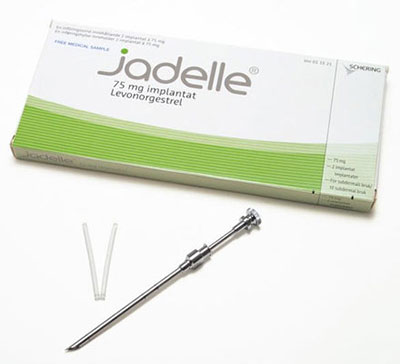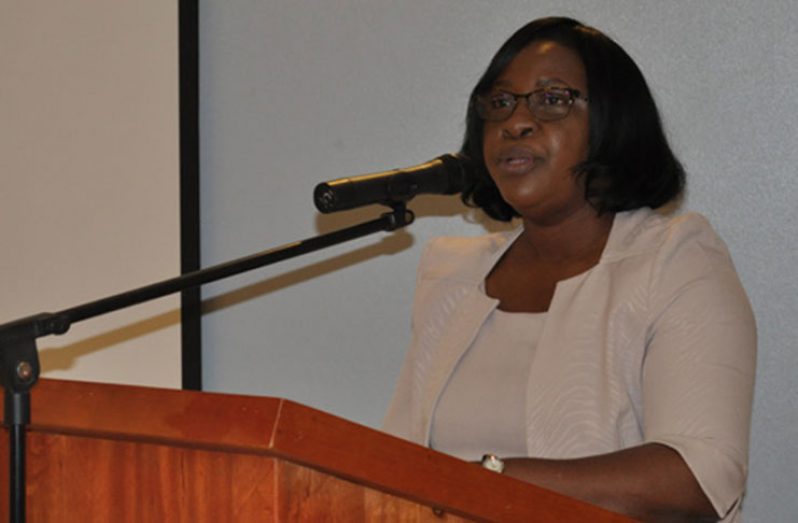– could help reduce unsafe abortions
OF the estimated 211 million pregnancies that occur worldwide on an annual basis, 87 million are unintended, 46 million of which end in induced abortions, according to the World

Health Organisation (WHO).
Of the 46 million abortions, approximately 21.6 million are unsafe and at the end of each year, it is further estimated that 47, 000 women die from complications of unsafe abortions.
According to the Center for Disease Control and Prevention, the high number of unintended pregnancies is directly linked to the unmet need for contraception (birth control) and family planning.
Here in Guyana, the Public Health Ministry, through its Maternal and Child Health (MCH) Department, is on a mission to expand the available family-planning options with the aim of bringing the large numbers of unwanted pregnancies down, and by extension, abortions.

Earlier this month, the Maternal and Child Health Department headed by Dr. Ertenisa Hamilton announced the introduction of a long-acting, reversible contraception for women, which goes by the brand name, Jadelle (levonorgestrel).
Jadelle is a contraceptive implant, which when placed under the skin of the upper arm slowly releases a hormone called progestogen that prevents pregnancy. For a period of five years, the implants can stop the body from releasing an egg each month, while thickening the mucus in the cervix so as to prevent sperm from travelling to the egg.
Dr. Hamilton, in an exclusive interview with the Guyana Chronicle, said while the contraceptive implant is new to Guyana and by extension Latin America and the Caribbean, it has been in use in other parts of the world.
In fact,the Jadelle Implant system was developed in the 1980s by The Population Council and had succeeded Norplant – the first implantable hormone delivery system developed by The Population Council.
The implant, Dr. Hamilton said, is more than 99% effective in preventing pregnancy.
“The implant is the most effective contraceptive that we have today,” Director of the Maternal and Child Health Department stated, noting that current trends indicate that “a lot of modern-day women prefer to have the implant because of its efficiency.”
In addition to the newly introduced Jadelle, there are a number of other contraceptives available in Guyana, such as the oral contraceptives, injectable birth control method mainly Depo-Provera and Noristerat, in addition to the Intra-uterine Device (IUD) which is also a long-term reversible contraceptive. Condoms are also widely used in Guyana; however, if not used correctly, pregnancy can occur.
Similarly, if the birth control pills and injectables are not used correctly, pregnancy can occur as well.
However, in the case of Jadelle, if a woman is desirous of becoming pregnant within the period of five years, Dr. Hamilton said the implant can be easily removed.
“Once you take it out your fertility returns, and within a month or two you can become pregnant, so it is reversible in that sense,” Director of the Maternal and Child Health Department explained.
This five-year, two-rod implant allows for effective family planning and significantly reduces the risk of having an unintended pregnancy, she emphasised.
Less than two weeks ago when the first batch of Jadelle implants were done at the Georgetown Public Hospital (GPHC) by trained personnel, approximately 30 women have opted for this form of contraception.
“The youngest woman was a 19-year-old, but many of the women were very young – approximately 30%,” Dr. Hamilton pointed out, while noting too that the majority of the women had no children.
It was noted that before and after the implants were done, all of the women who opted for the implant were tested to determine whether they were pregnant and were also counselled.
Once pregnant, the implant is advised against. However, if rods were inserted beneath the skin, and it was subsequently discovered that a woman is pregnant, they are removed, with no effect on the baby or mother.
During the counselling sessions, women who had had breast cancer or experienced hypertension were advised not to do the implant. It is during the counselling sessions too that patients are informed of the side effects of Jadelle which include irregular bleeding and no bleeding.
In December, the department is expected to conduct another batch of implants at the GPHC.
According to Dr. Hamilton, the implants will be conducted on a monthly basis at the public hospital. However, she said the department is currently devising a plan to have this method of contraception offered countrywide.
In addition to the GPHC, Jadelle is also available at the Guyana Responsible Parenthood Association (GRPA).
Minister within the Ministry of Public Health, Dr. Karen Cummings, said steady progress in contraception research has been made over the years.
“Contemporary contraceptive technologies have resulted in hormonal and non-hormonal modern contraceptives that have improved the lives of many women by reducing different health conditions that contribute to considerable morbidity. However, one must note very carefully that not all contraceptives available today are suitable for all users, therefore, the need to expand contraceptive choices still exists,” Minister Cummings said.
At the time Minister Cummings was addressing a group of health care professionals who recently underwent training in implants under the theme: “Training in Implants and other new Contraceptive Technologies in ZIKA Times.”
The healthcare professionals were urged to acquire the requisite theoretical knowledge and practical skills needed to correctly, safely, and with minimal undesirable outcomes, insert the contraceptives into women desirous of utilising this method of contraception.



.jpg)









